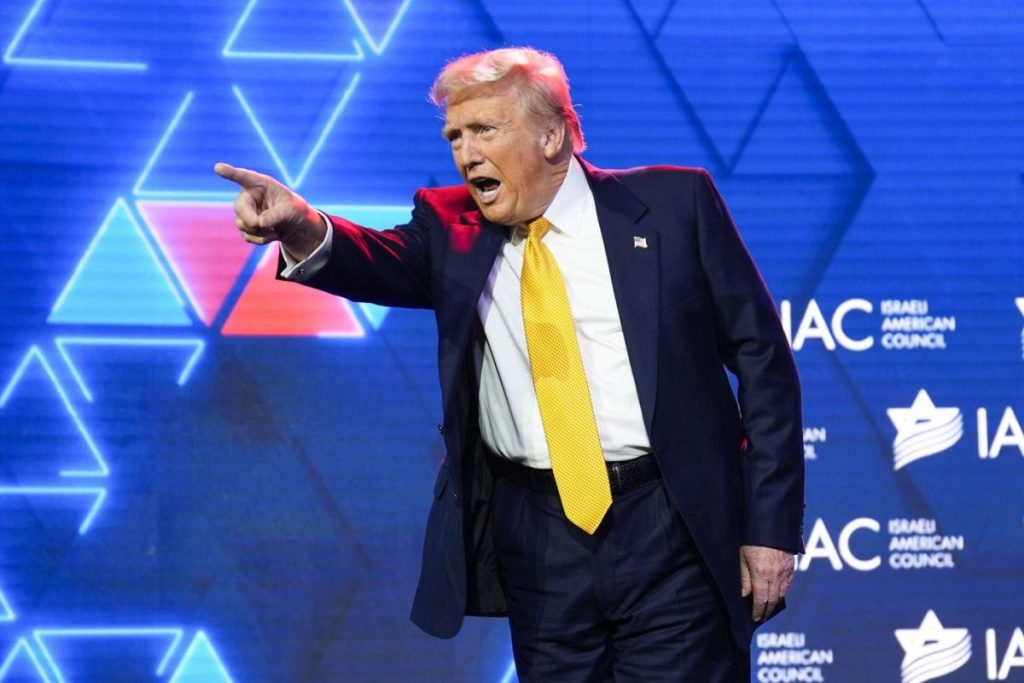Former President Donald Trump recently reissued his loyalty test to religious Americans, declaring that he can best protect their freedoms while blaming Jewish and Catholic voters should he lose the presidential election. Trump stated that Jews and Catholics who support him are fine, but those who don’t “need their head examined.” Jewish leaders, including Rabbi Rick Jacobs, were appalled at Trump’s remarks, calling them dangerous and reminiscent of antisemitic lies. Trump’s rhetoric experts have also criticized him for tying his divisive messaging to specific religious groups who oppose him.
Trump’s campaign press secretary, Karoline Leavitt, responded to the criticism by emphasizing Trump’s support for Israel and positioning him as more favorable towards Jewish Americans than his opponents. Trump’s provocative comments were made in speeches to Jewish donors and at the Israeli-American Council. Religious rhetoric expert Matthew Boedy noted that Trump has adopted spiritual warfare rhetoric, pitting himself against anyone who opposes him regardless of their religious beliefs, which poses a danger to democracy and religion.
David Gibson, director of the Center on Religion and Culture at Fordham University, highlighted the irony of Trump positioning himself as a savior for Catholics and Jews despite his divisive rhetoric and policies that contradict Catholic teachings. Trump’s tough stance on immigration, including calls for mass deportations, has also caused concern among Catholic voters. Professor Jennifer Mercieca warned against using religious identity as a means to divide people, calling Trump’s language reminiscent of that used by authoritarian cult leaders.
Positive reactions to Trump’s remarks were found among his Jewish supporters, including statements from prominent figures such as Miriam Adelson and Ellie Cohanim. However, criticism also came from within the Jewish community, with the American Jewish Committee issuing a strongly worded statement denouncing Trump’s suggestion that Jewish Americans who don’t support him are voting for the “enemy.” Trump’s remarks were also sharply criticized by left-leaning Jewish organizations, with accusations of scapegoating Jews and inciting violence against them if he loses the election.
Despite the mixed reactions, some individuals found a positive twist to Trump’s remarks. Betsy Frank, a Jewish woman, expressed her lack of support for Trump and stated that she would gladly take the blame for his loss in the election. Overall, Trump’s recent comments have stirred controversy within the Jewish community and raised concerns among religious leaders and academics about the potential consequences of his divisive rhetoric.


